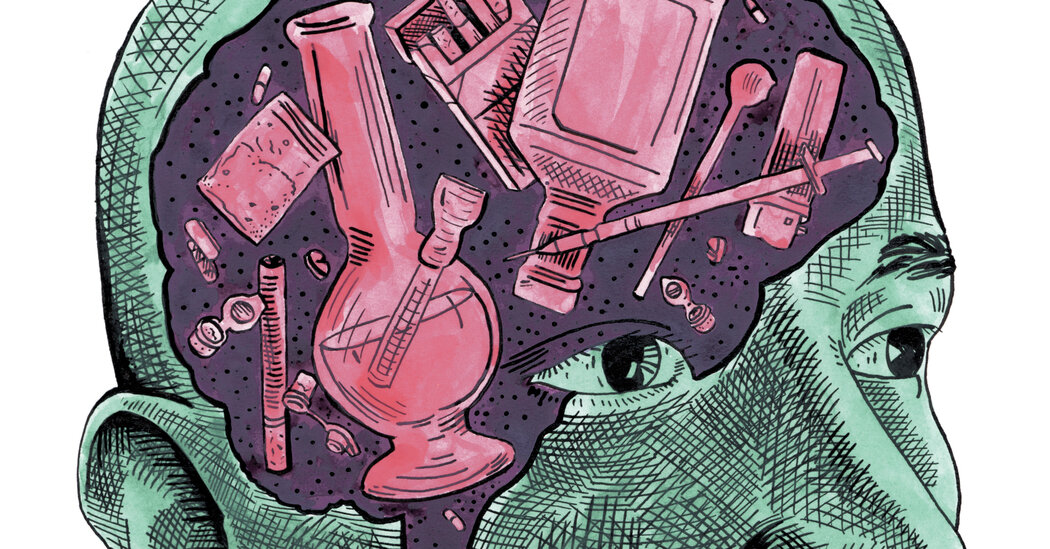Some researchers argue that the roles of social environment and personal choice have to be considered in order to make progress in treating people addicted to drugs.
The message emblazoned on a walkway window at the airport in Burlington, Vt., is a startling departure from the usual tourism posters and welcome banners:
“Addiction is not a choice. It’s a disease that can happen to anyone.”
The statement is part of a public service campaign in yet another community assailed by drug use, intended to reduce stigma and encourage treatment.
For decades, medical science has classified addiction as a chronic brain disease, but the concept has always been something of a hard sell to a skeptical public. That is because, unlike diseases such as Alzheimer’s or bone cancer or Covid, personal choice does play a role, both in starting and ending drug use. The idea that those who use drugs are themselves at fault has recently been gaining fresh traction, driving efforts to toughen criminal penalties for drug possession and to cut funding for syringe-exchange programs.
But now, even some in the treatment and scientific communities have been rethinking the label of chronic brain disease.
In July, behavior researchers published a critique of the classification, which they said could be counterproductive for patients and families.
“I don’t think it helps to tell people they are chronically diseased and therefore incapable of change. Then what hope do we have?” said Kirsten E. Smith, an assistant professor of psychiatry and behavioral sciences at Johns Hopkins School of Medicine and a co-author of the paper, published in the journal Psychopharmacology. “The brain is highly dynamic, as is our environment.”
The recent scientific criticisms are driven by an ominous urgency: Despite addiction’s longstanding classification as a disease, the deadly public health disaster has only worsened.
